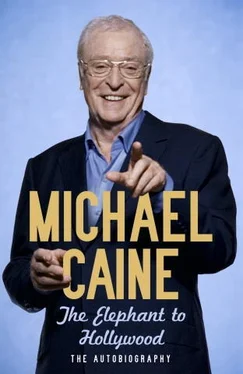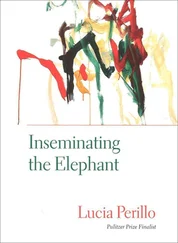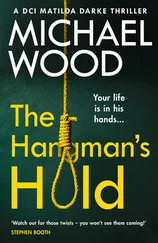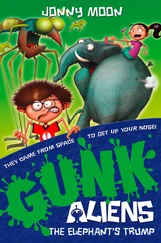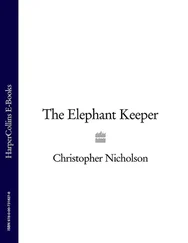Michael Caine - The Elephant to Hollywood
Здесь есть возможность читать онлайн «Michael Caine - The Elephant to Hollywood» весь текст электронной книги совершенно бесплатно (целиком полную версию без сокращений). В некоторых случаях можно слушать аудио, скачать через торрент в формате fb2 и присутствует краткое содержание. Город: London, Год выпуска: 2010, ISBN: 2010, Издательство: Hodder, Жанр: Биографии и Мемуары, на английском языке. Описание произведения, (предисловие) а так же отзывы посетителей доступны на портале библиотеки ЛибКат.
- Название:The Elephant to Hollywood
- Автор:
- Издательство:Hodder
- Жанр:
- Год:2010
- Город:London
- ISBN:978-1444700015
- Рейтинг книги:4 / 5. Голосов: 1
-
Избранное:Добавить в избранное
- Отзывы:
-
Ваша оценка:
- 80
- 1
- 2
- 3
- 4
- 5
The Elephant to Hollywood: краткое содержание, описание и аннотация
Предлагаем к чтению аннотацию, описание, краткое содержание или предисловие (зависит от того, что написал сам автор книги «The Elephant to Hollywood»). Если вы не нашли необходимую информацию о книге — напишите в комментариях, мы постараемся отыскать её.
The Elephant to Hollywood — читать онлайн бесплатно полную книгу (весь текст) целиком
Ниже представлен текст книги, разбитый по страницам. Система сохранения места последней прочитанной страницы, позволяет с удобством читать онлайн бесплатно книгу «The Elephant to Hollywood», без необходимости каждый раз заново искать на чём Вы остановились. Поставьте закладку, и сможете в любой момент перейти на страницу, на которой закончили чтение.
Интервал:
Закладка:
The only thing my father liked about working at Billingsgate was the fact that he could come home at midday and get round to the bookies. He was a committed gambler and his steady run of bad luck on the horses was the main reason I began my acting career at the front door. It was my mother who held us all together. She devoted her life to my brother and me and made sure we never went without, but it was a second-hand world we lived in – second-hand clothes and (never a good idea with growing feet) second-hand shoes. By the age of four my rickets was cured – mainly from having to run up and down the five flights of stairs between our flat and the only toilet in the house, which was in the garden and shared between the five families living there. I also developed strong legs and a strong bladder but I was sorry to have to abandon my special boots. At least they fitted.
By the time I got to school most of my physical problems had disappeared – or rather, they had reversed. No longer an ugly kid, I had turned into a very cute one – so cute, that my teacher at the John Ruskin Infants’ School took one look at my curly blond hair and big blue eyes and christened me ‘Bubbles’. Big mistake. After I had put up with two or three days of being kicked and punched by the other kids my mother came marching down to the playground. ‘Where are the boys who did this?’ she demanded. When I pointed them out she beat the shit out of them. I had no more trouble after that, but I didn’t want my mother to fight my battles for me, so I asked my father what to do. ‘Fight them,’ he said immediately. ‘There’s no shame in losing, only in being a coward.’ And he got down on his knees and put his fists up and persuaded me to hit him. I soon got the idea – and no one at school tried anything after that.
Fighting at school was one thing, the Lone Ranger fighting the bad guys every Saturday morning was another, but some real fighting was just about to start. The first thing my brother and I knew about it was my mother sitting us both down and telling us that we were going to have to go and live in the country because a bad man called Adolf Hitler was going to drop bombs on our house. It didn’t make much sense to us. We didn’t know anyone called Adolf Hitler so how could he know where we lived? But gradually the reality of war began to take over our little world. First there were the gas masks, made to look like Mickey Mouse and issued to us at school. We tried them on to make sure they fitted and I ran about the playground just like the other kids – except for some reason my mouthpiece was blocked and I keeled over in a dead faint through lack of oxygen. I’d let the side down, it seemed, and I was sent home in disgrace, leaving me with a burning sense of injustice and a lifelong loathing of the smell of rubber.
I’ll never forget Evacuation Day. My father had taken the only day off work he ever had in his life to come and say goodbye. Stanley and I were all dressed up in our best clothes, new prickly wool shirts that were the scratchiest I’d ever worn (until I joined the British army), ties choking our necks, and labels attached to our jackets. Right up to the time we got to the school playground, my mother was still pretending it was all going to be fun. But first one mother started sobbing, then another and eventually they were all at it – even ours – and we realised that this was no joke. As we marched off in a crocodile, me clutching Stanley’s hand in an iron grip, I turned back for one last look at my mum waving her handkerchief and weeping – and promptly trod in a great pile of dog shit. There was a lot of jeering and catcalling and I was made to go to the back of the line and walk by myself. As I walked on, tears streaming down my face, one of the teachers took pity on me and gave me a hug. ‘It’s good luck,’ she said. I looked at her in disbelief. ‘It is,’ she insisted. ‘You’ll see.’ Something must have stuck with me, because, years later, when the cameras were rolling for the opening shot of Alfie , where I’m walking along the Embankment by Westminster Bridge, I did the same thing. The director Lewis Gilbert said, ‘Cut!’ and turned to me as I hopped about, changing my shoe. ‘That’s good luck,’ he said. ‘I know,’ I replied. ‘My teacher told me.’ And we went on to do Take Two of the movie that would make me a star. You see? You should always listen to your teacher.
That first evacuation did not last long. Stanley and I were the last two children left in the village hall at Wargrave in Berkshire and had to be rescued by a very kind woman who whisked us off to a huge house in a Rolls Royce. There we were showered with kindness and given unlimited cake and lemonade – it all seemed too good to be true. It was. The next day a busybody official came round and said we were too far from the school and we would have to be sent elsewhere and split up.
Stanley was sent to live with a district nurse and I was taken in by a couple who were just plain cruel. My mother couldn’t come to visit straight away because the Germans were bombing the railway lines. When she eventually managed to get down she found me covered in sores and starving. There was an allowance to cover the costs of taking in evacuees and my hosts were out to keep as much of it as possible; I’d been living on a tin of pilchards once a day. Even worse, they used to go away for the weekend and leave me locked in the cupboard under the stairs. I’ve never forgotten sitting hunched in the dark, crying for my mum and not knowing if anyone would ever come to get me out; time had ceased to have any meaning. That experience was so traumatic that it has left me with a lifelong fear of small, enclosed spaces and a burning hatred of any cruelty to children; all my charity work is aimed at children’s charities, particularly the NSPCC. Anyway, back then I decided I’d rather risk the bombing than be locked up in a cupboard again. Happily, my mother agreed and took Stanley and me straight back to London, determined not to be parted from us again.
By now the Blitz on London was happening in earnest and it seemed to me that Adolf Hitler had found out our address. The bombs got closer and closer and when London was set alight by blanket incendiary bombing during the Battle of Britain, my mother had had enough. My father was called up to serve in the Royal Artillery and she took us to North Runcton in Norfolk, on the east coast of England.
Sometimes I think the Second World War was the best thing that ever happened to me. Norfolk was a paradise for a scrawny little street urchin like me, coming from all the smog and fog and filth of London. I was a little runt when I went there and by the time I was fourteen I had shot up to six foot, like a sunflower growing up a wall. Or a weed. Wartime rationing meant no sugar, no sweets, no cakes – no artificial anything – but we had good food, supplemented with wild rabbits and moorhens’ eggs. Everything was organic because all the chemical fertilisers were needed for explosives, so I was given this unexpectedly healthy start in life. We lived with another ten families crammed together in an old farmhouse, with fresh air, good food and, best of all, the chance to roam free in the countryside. I went round with a gang of other evacuees; the village mothers wouldn’t let their kids play with us because we were so rough and our language was a bit suspect, to say the least. Now I look back on it, we must have been a bit of a bloody nuisance – we raided the orchards, stole milk off doorsteps and got into fights with the local boys – but my experiences there changed my life. I appreciated the country because I went there and I appreciated London because I’d left it behind.
After six months in Norfolk, my father came home for a fortnight’s leave. We wanted to hear Lone Ranger-type stories of fighting the Germans, but he was simply exhausted. He’d just come, he said, from a place in France called Dunkirk. It didn’t mean anything to us at the time, but when I look back now I wonder at what sort of hell he went through there. When his leave was up he was sent to North Africa with the Eighth Army to fight Rommel. We didn’t see him again for four years.
Читать дальшеИнтервал:
Закладка:
Похожие книги на «The Elephant to Hollywood»
Представляем Вашему вниманию похожие книги на «The Elephant to Hollywood» списком для выбора. Мы отобрали схожую по названию и смыслу литературу в надежде предоставить читателям больше вариантов отыскать новые, интересные, ещё непрочитанные произведения.
Обсуждение, отзывы о книге «The Elephant to Hollywood» и просто собственные мнения читателей. Оставьте ваши комментарии, напишите, что Вы думаете о произведении, его смысле или главных героях. Укажите что конкретно понравилось, а что нет, и почему Вы так считаете.
